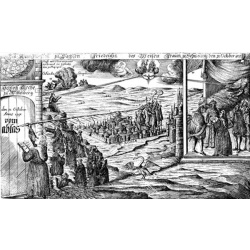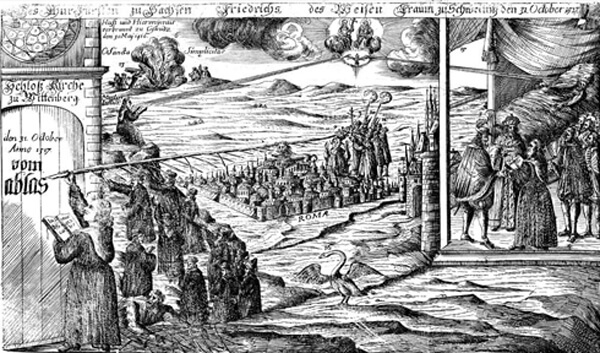
Luther College commemorating the 500th anniversary of the start of the Reformation
2017 marks the 500th anniversary of the Protestant Reformation which was set into motion when Martin Luther posted his "95 Theses" (or statements for debate) on the door of the Castle Church in Wittenberg, Germany on October 31, 1517. Luther's public protest began as an attempt to reform the Roman Catholic Church, but it ultimately influenced the political and cultural scope of Europe and the entire Western world.
At the core of the Reformation is the fundamental principle that salvation is based on justification by faith in God alone and it cannot be earned by good works. Luther was critical of the church for taking money from the Christians who believed their time in purgatory would be shortened by purchasing indulgences. Luther also emphasized the authority of Scripture alone, and denied the Pope and councils as the final authorities of the church.
Luther's ideas were not new, but he and other reformers of his time were the first to utilize the technology of the printing press to disseminate their ideas to a wide audience, first in Germany and then across all of Europe. His formulation of salvation being justified by faith alone is the most significant theological legacy of the Protestant Reformation and its influence can be seen in modern denominations around the world.
The Reformation had a significant impact on Christianity, education, economics, history, culture, and Western thought - both good and bad. Because of the Reformation's historical, religious, and cultural force, Luther College will spend 2017 exploring the Reformation in detail, including its impact, legacy, and its continuing relevance today.
Information on various events, performances, and exhibitions that make up Luther College's Reformation commemoration, "The Reformation of Everything: Exploring a Movement that Changed the World," can be found at http://www.luther.edu/reformation-2017/
Site designed and maintained by Iroc Web Design Services©.
Your Small Business Web Design Solutions.™


